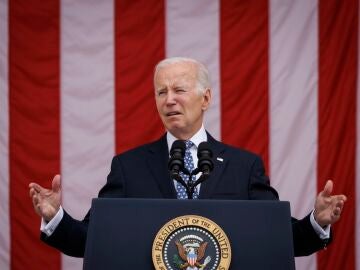
The United States Senate, under Democratic control, approved this Thursday the agreement reached between the White House and the Republicans to raise the debt ceiling, thus preventing the country from going into suspension of payments.
With 63 votes in favor and 36 against, the bill passed the last legislative hurdle before ending up in the Oval Office for President Joe Biden to sign his signature.
The draft has been approved by the Senate one day after the Lower House, in the hands of the Republicans, gave it its approval and four days before the deadline set by the Treasury Department in which the US could have defaulted of its national debt.
“The United States can breathe easy because with this process we are avoiding the suspension of payments,” said the leader of the Democratic majority in the chamber, Chuck Schumer, shortly before the vote. With these words, Schumer announced an agreement with a group of Republican senators wayward who shortly before had threatened to lengthen the process if the Democrats did not commit to ensuring that the defense budget could be increased more than what is contemplated in the agreement itself.
Following his speech, he began a long process of proposing amendments that, however, failed to prevent the bill from being ratified as approved the day before by the House of Representatives. The measure suspends the debt ceiling for the next two years, until after the November 2024 presidential elections.
Specific, suspends current debt limit of $31.4 trillion until January 1, 2025. In exchange, the agreement reached over the weekend between the White House and the Republicans in the Lower House contemplates, among other things, caps on spending on programs financed by Congress in areas such as health, education, justice or environmental protection. Under that pact, non-defense spending will stay the same in fiscal year 2024 and increase 1% in fiscal year 2025.
Likewise, it tightens the work requirements to access social benefits, such as food stamps, and rescinds 28,000 million unspent dollars that had been assigned to aid programs against the pandemic. In parallel, cuts part of the new funds destined to the Treasuryto public to reallocate them to items that are not defense and contemplates the resumption of payments by university students of the debt they have accumulated. The debate in the Senate started around 2:30 p.m. this Thursday (6:30 p.m. GMT).
Shortly after, US President Joe Biden returned to the White House after attending an Air Force graduation ceremony in Colorado. where he suffered a spectacular fall, received a call from former President Barack Obama in which the former president inquired about the votes in Congress, the government said. Prior to the debate, Senate Majority Leader Chuck Schumer stated that the chamber would remain in session until this bill passed and warned that any “unnecessary delay” would be “an unnecessary and even dangerous risk”.
The approval of the agreement in both chambers of Congress was crucial so that the country did not default on its public debt, after the debt ceiling was reached last Januarythe legal limit to the money that the US can borrow to meet its commitments.
Source: Lasexta
Ricardo is a renowned author and journalist, known for his exceptional writing on top-news stories. He currently works as a writer at the 247 News Agency, where he is known for his ability to deliver breaking news and insightful analysis on the most pressing issues of the day.












